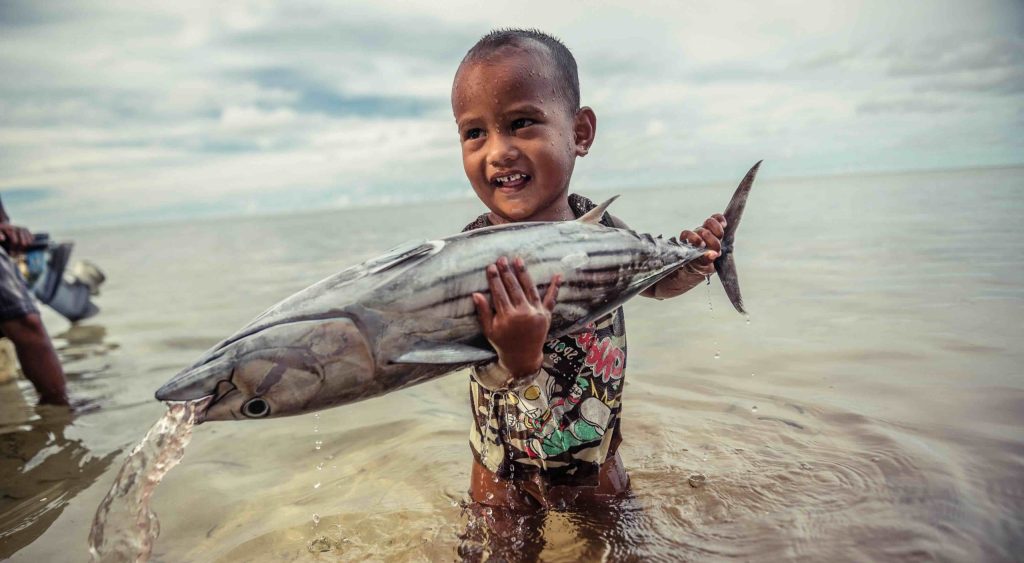In the vast, blue expanse of our world's oceans, a sleek and powerful swimmer plays a pivotal role not just in the marine ecosystem but also in the global economy and culinary traditions across the globe. Tuna, a name that conjures images of epic sea battles and sushi delicacies, finds itself at the heart of a significant environmental observance: World Tuna Day. Celebrated on May 2, this day isn't just a nod to a fish species; it's a global call to action aimed at preserving one of the ocean's most magnificent creatures and the livelihoods that depend on it. From the bustling fish markets of Tokyo to the remote waters of the Pacific, tuna's tale is one of both bounty and peril. With their populations teetering under the weight of overfishing and habitat destruction, the inception of World Tuna Day following the 2011 International Conference on Tuna Conservation in Samoa was a beacon of hope. It marked a collective endeavor to safeguard these marine giants and their habitat for future generations. As we gear up to celebrate, let's dive into the depths of this observance, its origins, and why maintaining sustainable tuna fisheries is more critical now than ever.
Key Takeaway
Timeline
Day Activities
-
Engage in Educational Workshops: On World Tuna Day, communities often host workshops aimed at educating participants about sustainable fishing practices. These sessions delve into the nitty-gritty of how to balance tuna fishing with ecological preservation, ensuring that attendees walk away with a deeper understanding of the delicate balance between industry and environment.
-
Participate in Cleanup Drives: Coastal areas see a flurry of activity with volunteers gathering to clean up beaches and waterways. This hands-on approach not only helps protect the habitats of various marine species but also underscores the interconnectedness of human actions and marine health. It's a tangible way to contribute to the conservation efforts that World Tuna Day stands for.
-
Support Sustainable Seafood: Restaurants and consumers alike are encouraged to choose sustainably sourced tuna, making a direct impact on demand and supply chains. By opting for seafood from sources that adhere to responsible fishing practices, individuals can play a crucial role in driving the market towards sustainability, making every bite a vote for the environment.
Interesting Facts
1. Origins in Samoa
In 2011, Samoa hosted a conference sparking the idea for World Tuna Day.
2. First Celebration in 2012
World Tuna Day kicked off globally on May 2, 2012.
3. Aims for Sustainability
It promotes sustainable fishing to protect tuna populations.
4. Global Participation
Governments and NGOs worldwide observe this day.
5. Economic and Cultural Significance
Tuna is vital to many, especially in the Pacific.
Why We Love This Day
Why we love World Tuna Day on May 2
-
Celebrates the mighty tuna: Let's face it, tuna is more than just a sandwich filler or a sushi staple. This day shines a spotlight on one of the ocean's speedsters, highlighting not only its culinary value but also its role in marine ecosystems. Recognizing the significance of tuna encourages us to appreciate and protect these incredible fish, ensuring they remain part of our seas and menus for years to come.
-
Spotlights sustainability: With our oceans facing threats from overfishing to pollution, World Tuna Day is a timely nudge reminding us all about the importance of sustainable fishing practices. It's a call to action for consumers, fishers, and policymakers alike to support efforts that keep tuna stocks healthy and thriving. After all, ensuring the sustainability of tuna fisheries is crucial for the economy, the environment, and our dinner plates.
-
Fosters global collaboration: This observance isn't just a drop in the ocean; it's a wave of global action. Countries, NGOs, and communities around the world come together on May 2 to share knowledge, strategies, and innovations aimed at preserving tuna populations and their habitats. This collective effort underscores the power of collaboration in tackling environmental challenges and preserving the natural world for future generations.
Past & Future Dates
| Month | Day | Year |
|---|---|---|
| MAY | 2 | 2022 |
| MAY | 2 | 2023 |
| MAY | 2 | 2024 |
| MAY | 2 | 2025 |
| MAY | 2 | 2026 |
| MAY | 2 | 2027 |
| MAY | 2 | 2028 |
FAQ
What is World Tuna Day?
World Tuna Day is marked every year on May 2 and is devoted to bringing issues to light about the importance of tuna conservation. Tuna is famous for its various medical advantages.
What is the main purpose of tuna day?
The Marine Stewardship Council (MSC), which certifies fisheries as sustainable, also uses World Tuna Day to raise awareness about overfishing and protecting tuna stocks for future generations.
What date is world tuna celebrated?
May 2 is World Tuna Day. Tuna species are a valuable food source for millions of people and fundamental to the global economy. In 2022, the catch of major commercial tuna stocks totaled about 5.2 million tonnes. Tuna also are integral to the health of the greater marine ecosystem.
What organization designated May 2 as World Tuna Day?
World Tuna Day has been observed internationally on May 2nd since 2017, following the adoption of Resolution A/RES/71/124 by the United Nations General Assembly on December 7, 2016.
